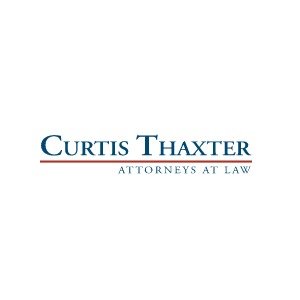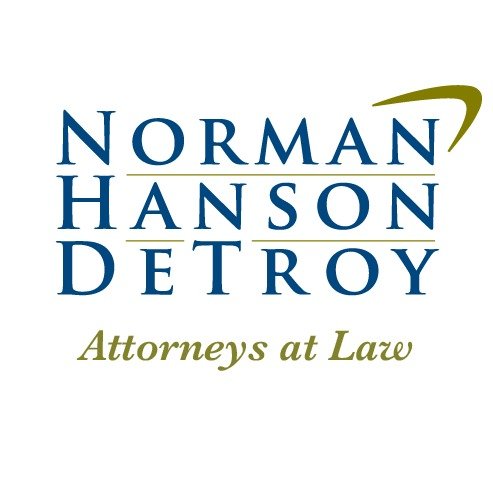Best Trusts Lawyers in Maine
Share your needs with us, get contacted by law firms.
Free. Takes 2 min.
Or refine your search by selecting a city:
List of the best lawyers in Maine, United States
About Trusts Law in Maine, United States
A trust is a legal arrangement where one person, known as a trustor or settlor, transfers assets to another person or institution, called a trustee, who manages those assets for the benefit of third parties known as beneficiaries. In Maine, trusts are used for a variety of purposes, including estate planning, asset protection, charitable giving, and guardianship of minors or those with special needs. Trusts can be created during a person’s lifetime (living trusts) or upon their death through a will (testamentary trusts). The state of Maine has adopted the Maine Uniform Trust Code, which governs the creation, administration, and termination of trusts within the state.
Why You May Need a Lawyer
Navigating trust law in Maine can be complex, and there are several reasons why individuals may require legal assistance when dealing with trusts:
- Setting up a trust that meets your specific goals and complies with Maine law
- Choosing the proper type of trust, such as revocable versus irrevocable, special needs trusts, or charitable trusts
- Ensuring proper funding of the trust with designated assets
- Adhering to tax requirements and seeking tax advantages where possible
- Modifying or terminating an existing trust in accordance with state regulations
- Resolving disputes between trustees and beneficiaries
- Ensuring that trustee duties are properly carried out, including accounting, investments, and distributions
- Handling out-of-state assets or beneficiaries
- Addressing unique family situations, such as blended families or dependents with special needs
- Dealing with challenges to the validity of the trust or allegations of undue influence
Local Laws Overview
The laws governing trusts in Maine are primarily found in Title 18-B of the Maine Revised Statutes, known as the Maine Uniform Trust Code. The Code outlines the requirements for establishing a valid trust, duties of trustees, rights of beneficiaries, and procedures for modification or termination of trusts. Key aspects unique to Maine include:
- Clear requirements for trust creation, including intent, identifiable beneficiaries, and a specific purpose
- Flexible options for modifying or terminating trusts with court approval or by consent of beneficiaries and trustees
- Trustees must follow the prudent investor rule, managing assets solely in the interests of beneficiaries
- Special provisions governing charitable trusts and trusts for nonhuman beneficiaries, such as pets
- Certain creditor protections for trusts, like spendthrift clauses, which can shield assets from claims against beneficiaries
- Trusts must generally be administered according to Maine law if governed in Maine, but may interact with other states’ laws where assets or parties are located outside Maine
Frequently Asked Questions
What is the difference between a revocable and irrevocable trust?
A revocable trust can be altered or revoked by the creator during their lifetime, allowing flexibility and control. An irrevocable trust generally cannot be changed once established, but offers greater protection from creditors and potential tax benefits.
Do trusts avoid probate in Maine?
Yes, assets held in a properly funded living trust usually pass directly to beneficiaries upon death, avoiding the probate process and associated delays and costs.
What types of assets can be placed in a trust?
Many kinds of assets can be placed in a trust, including real estate, bank accounts, investments, business interests, and personal property. Some assets, like retirement accounts or certain insurance policies, have special rules and may require careful planning.
Can I act as the trustee of my own trust?
Yes, in most cases, the person establishing a living trust can serve as the initial trustee, managing the assets during their lifetime. Upon incapacity or death, a successor trustee takes over management and distribution.
How are trusts taxed in Maine?
Trusts are subject to both federal and state taxation. Trust income may be taxed at the trust level or passed through to beneficiaries, depending on distributions and trust structure. Maine has specific rules for the taxation of resident and nonresident trusts.
What is a special needs trust?
A special needs trust is designed to provide for a person with disabilities while not jeopardizing their eligibility for government benefits such as Medicaid or Supplemental Security Income.
Can trusts be contested in Maine?
Yes, a trust can be challenged in court on several grounds, including lack of capacity, undue influence, or improper execution. Legal guidance should be sought if a dispute arises.
What responsibilities do trustees have in Maine?
Trustees have a fiduciary duty to act in the best interests of beneficiaries, manage trust assets prudently, keep accurate records, provide regular accountings, and make fair distributions according to the trust terms.
How do I fund a trust?
Funding a trust involves legally transferring ownership of assets into the name of the trust. This may include retitling real estate, updating account registrations, and assigning ownership of personal property and investments.
How can I change or terminate a trust?
Changes or termination depend on the type of trust and its terms. Revocable trusts can be amended by the trustor during their lifetime, while irrevocable trusts are generally more restrictive and often require court approval or beneficiary consent.
Additional Resources
If you need more information or support regarding trusts in Maine, the following resources may be helpful:
- Maine Judicial Branch - Probate Court: Provides information on probate proceedings, estate, and trust matters within the Maine court system.
- Maine State Bar Association: Offers legal education, directories of attorneys, and general public resources regarding trusts and estates.
- Maine Department of Health and Human Services: For issues involving public benefits and special needs trusts.
- Legal Services for the Elderly: A nonprofit providing free legal assistance on estate and trust matters for Maine residents age 60 and over.
- Local county probate courts: Each county in Maine has a probate court handling trust and estate filings and disputes.
Next Steps
If you believe you need legal assistance with creating, administering, or contesting a trust in Maine, you should:
- Identify your specific goals and needs regarding your estate or assets
- Gather relevant documentation, such as wills, deeds, account statements, and previous trust documents
- Contact a qualified Maine attorney specializing in trust and estate law
- Ask about initial consultations, fees, and the law firm’s experience with trusts similar to your situation
- Stay informed about local Maine trust laws and updates that may affect your estate planning
Taking timely legal advice and acting proactively can protect your assets and ensure that your wishes are honored according to Maine law.
Lawzana helps you find the best lawyers and law firms in Maine through a curated and pre-screened list of qualified legal professionals. Our platform offers rankings and detailed profiles of attorneys and law firms, allowing you to compare based on practice areas, including Trusts, experience, and client feedback.
Each profile includes a description of the firm's areas of practice, client reviews, team members and partners, year of establishment, spoken languages, office locations, contact information, social media presence, and any published articles or resources. Most firms on our platform speak English and are experienced in both local and international legal matters.
Get a quote from top-rated law firms in Maine, United States — quickly, securely, and without unnecessary hassle.
Disclaimer:
The information provided on this page is for general informational purposes only and does not constitute legal advice. While we strive to ensure the accuracy and relevance of the content, legal information may change over time, and interpretations of the law can vary. You should always consult with a qualified legal professional for advice specific to your situation.
We disclaim all liability for actions taken or not taken based on the content of this page. If you believe any information is incorrect or outdated, please contact us, and we will review and update it where appropriate.
Browse trusts law firms by city in Maine
Refine your search by selecting a city.










